Climbing off the Streets, Part 3: Acceptance and Rejection
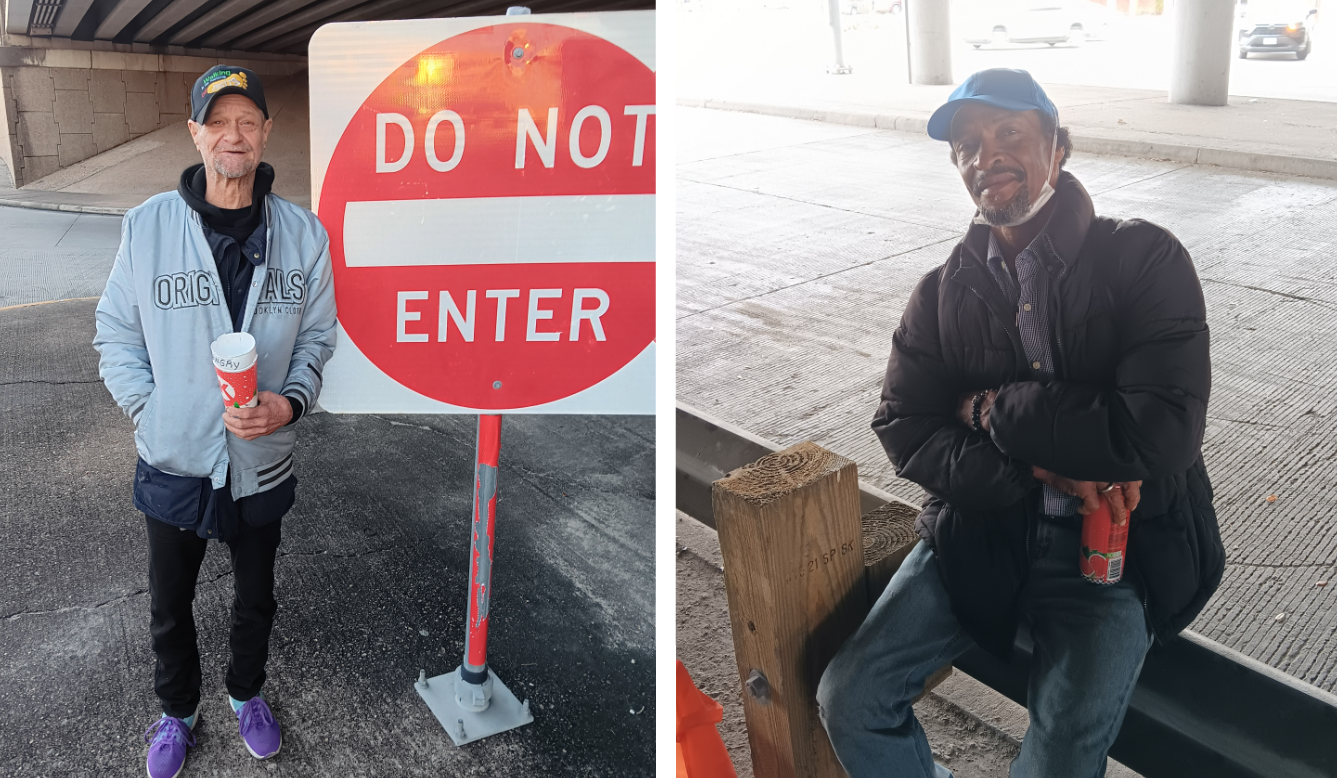
Running late, I pull up to a Sharpstown tattoo shop at 11:40 AM on the first Tuesday of 2024. Dale Malone and Leroy Conner—who both slept under the nearby freeway bridge for months until they changed locations a week or so ago—are waiting for me.
Fortunately, they’ve both packed. Leroy hops into the back seat with his backpack, and Dale stuffs his wide, tan sleeping bag into my trunk before hopping into the passenger seat.
We take off, not wanting to miss their appointments at the Rosenberg DPS. Dale is trying to get a replacement driver’s license, and Leroy is trying to get a first-time Texas ID. For both men, a government-issued photo ID is a vital step to getting off the streets. In today’s society, an ID is crucial for everything from getting a job to renting an apartment to opening a bank account.
Like most homeless folks, Dale and Leroy have lost their IDs. Today, they hope to change that.
Leroy has good news and bad news. The good—he recently landed an unofficial night security job that comes with a safer place to sleep, at least for now. The bad—he ran into difficulties trying to get his medical record.
The Social Security office had told him that a medical record would help him get identification, so he visited the Texas Medical Center, where he said he had received surgery. They said they didn’t have any records of him.
Then he visited Memorial Hermann Southwest, where they told him that he had to travel to the corporate office on Gessner and I-10 to get his medical record. When he took a bus there, they told him that the record would need to be mailed and would take four to six weeks to arrive. He didn't have that long.
Now, Leroy is hoping that with a slimmer number of documents, including his birth certificate, voter registration card, and a homeless ID issued by the Harris County Sheriff's Office's Homeless Outreach Team (HOT), he can still get his Texas ID. At least he has more documents than most homeless people.
Dale only needs a replacement copy of his license, so he only needs to show one piece of identification. He’s hoping his registered METRO bus card (which carries his name and photo) will count. He’s lost all his other documents due to multiple thefts—a common ordeal for homeless people.
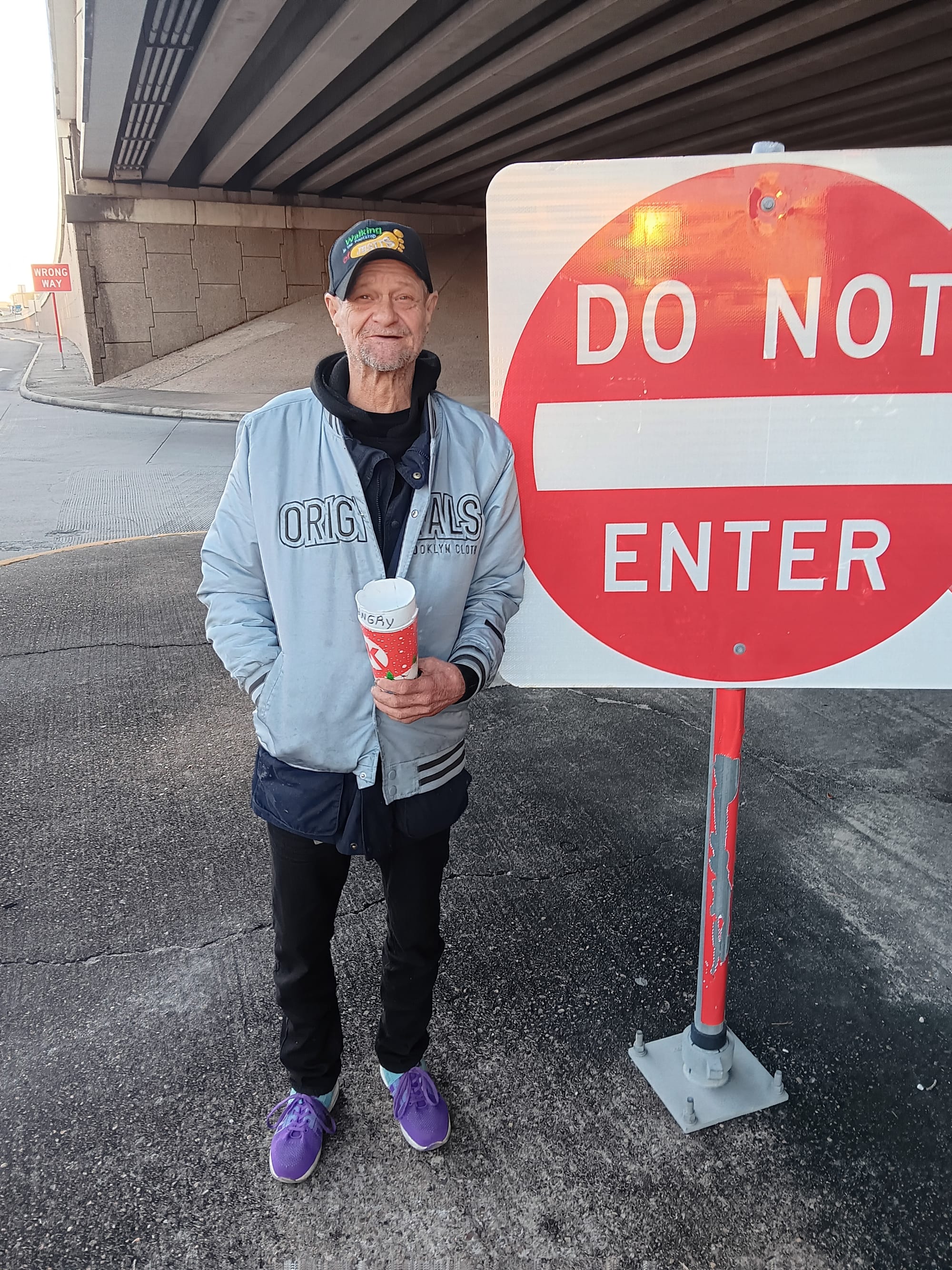
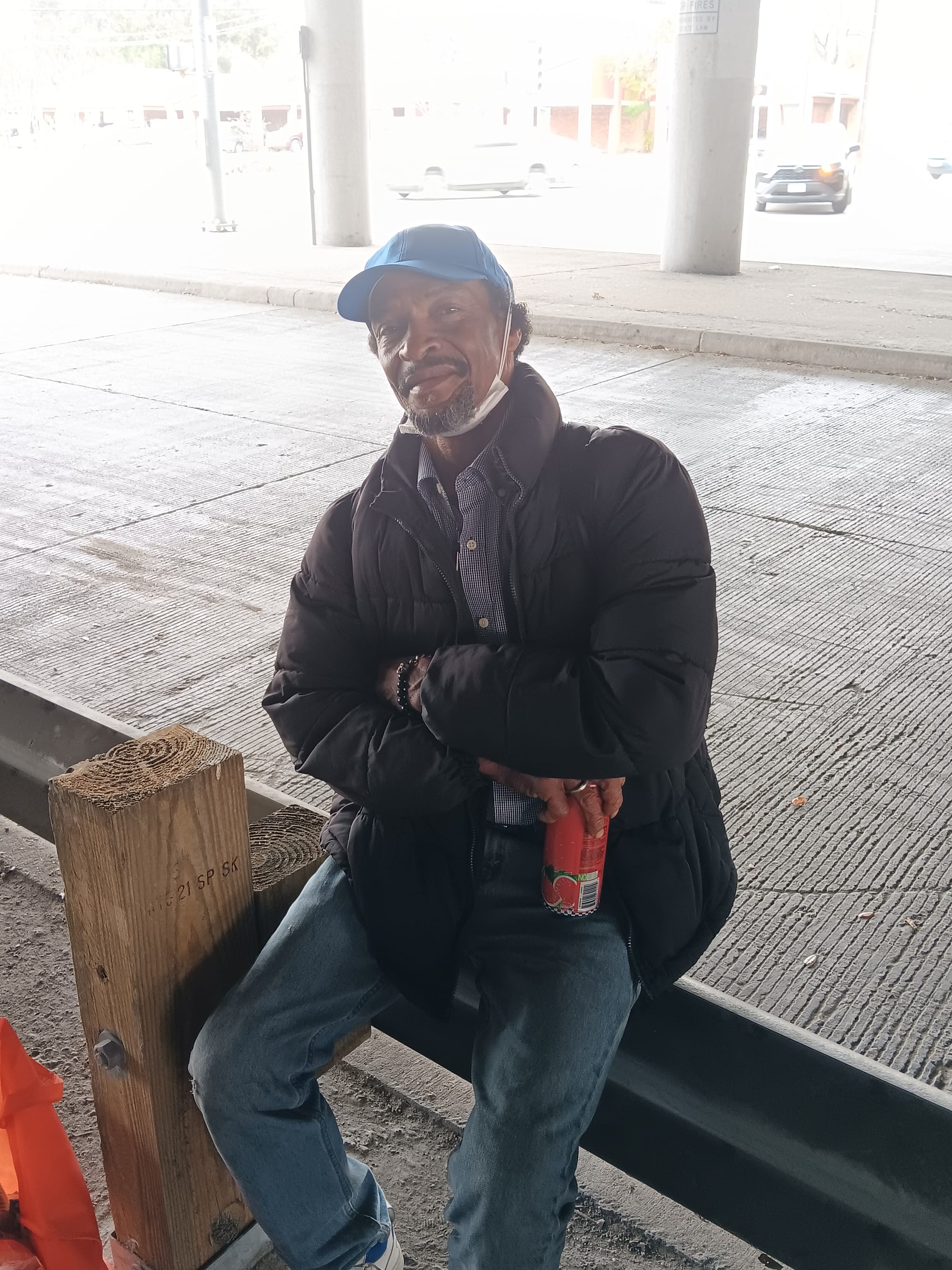
Left to right: Dale Malone and Leroy Conner
We get to the DPS just a few minutes late for Dale and Leroy’s 12:01 PM appointments. After they get their tickets from the computers near the door, Dale asks an employee if his METRO bus card will work.
She isn’t sure, so she turns to another employee behind her. They discuss it, then she turns back to Dale. "I confirmed it. This is considered a government ID because it's Harris County. So we can replace it with this."
Leroy has vanished into one of the waiting areas. Dale finds an empty table and sits to fill out his application. Fortunately, he still remembers his social security number and other important information.
But he runs into one of the Catch-22s: he needs to put down an address on the form. (Homeless people need an address to get an ID, but they need an ID to get an address.)
Fortunately, Dale has already made arrangements and received permission to use an address. It’s a fairly common solution in Houston. For example, some organizations that serve the homeless allow them to use the organization’s address for mailing and ID purposes until they can get into housing.
As Dale is about to finish the form, Leroy pulls up to our table, smiling. "I have high hopes." He says the DPS employee who saw him is going to double-check something and then call his name again.
In the past, Leroy says, the DPS in Houston didn't accept his HOT ID. But this time, in Rosenberg, it might be different.
Leroy heads back to the other waiting area. Dale’s ticket number sounds on the speakers and pops onto the wall-mounted televisions. We head to his assigned cubicle.
When the woman behind the desk asks for identification, Dale hands her his METRO card.
She says it won't work.
He starts rattling off his driver's license number. She replies, “You’ve gotta give me something that identifies you. You can’t tell me any numbers.”
Dale buries his face in his hands. “I’ll never make it off the streets.”
After a back-and-forth, she says she'll talk to her manager to see if the METRO card works.
When she disappears, Leroy appears behind us, his voice low and excited. “I will get it... I got goosebumps all over.”
Later, he tells us that they used his HOT ID to serve as photo identification. He says that the day before, the HOT officer who gave him the ID told him, "Well, we try."
Leroy grins. "When I see him next time, I’ll tell him, ‘Man, they used that sheriff ID, and it was approved.’”
Dale congratulates Leroy.
Then the woman returns to speak with Dale. "I asked management, and they can't approve it."
Dale's head jerks downward.
"I'm never gonna get a license. I knew it."
Correction: in the earlier version, I said that Leroy got his homeless ID from HPD's Homeless Outreach Team (HOT). Actually, he got it from the Harris County Sheriff's Office's Homeless Outreach Team (also HOT). I didn't realize that there were two different HOT's. (And don't confuse them with Council Member Edward Pollard's HOT team that cleans up illegal dumping in District J!) My apologies to HCSO for failing to give them due credit earlier.
Yep, I had to end on a cliffhanger. Subscribe for free so you don't miss future articles in this series, where I follow Dale and Leroy in their quest to climb off the streets of Sharpstown. You can read Part 4 here:
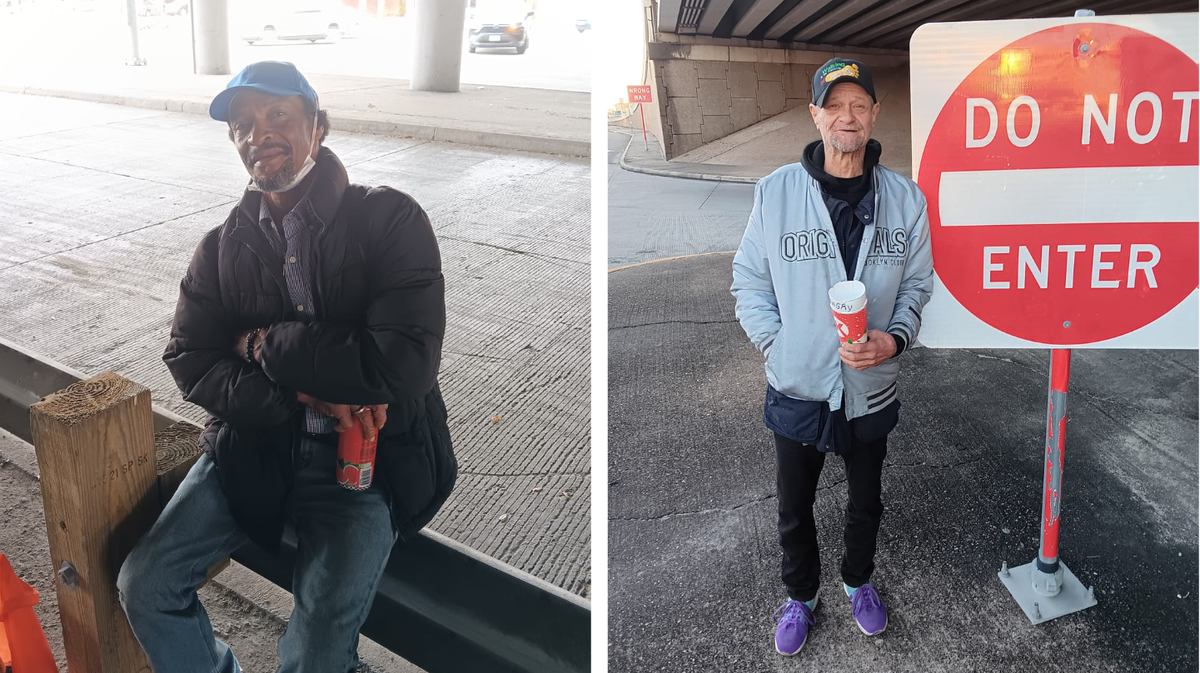
Conflict of Interest Statement: It should be obvious, but I take a personal interest in this story. After all, I drove Dale and Leroy to Rosenberg. I've known them for a while, especially Dale (I've spent countless hours in conversations with him over the last four years). That's why I used their first names instead of following the standard journalistic practice of using last names. I'm taking a more personal approach for this series. Both men have also attended my church—Dale on a semi-regular basis. Finally, several Christian friends and I are involved in an unofficial homeless ministry that meets on a weekly basis, and we often speak with these two men.

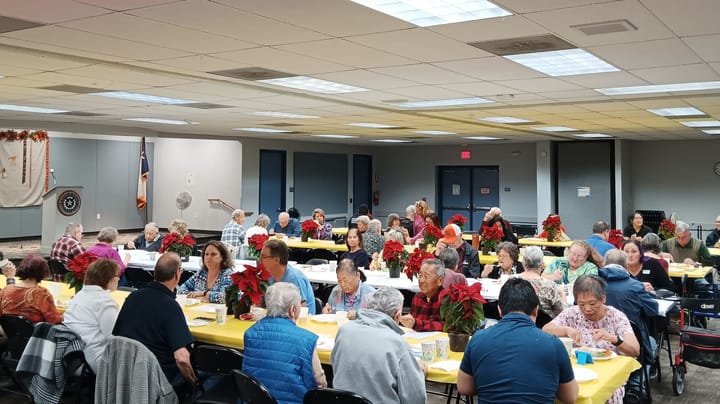
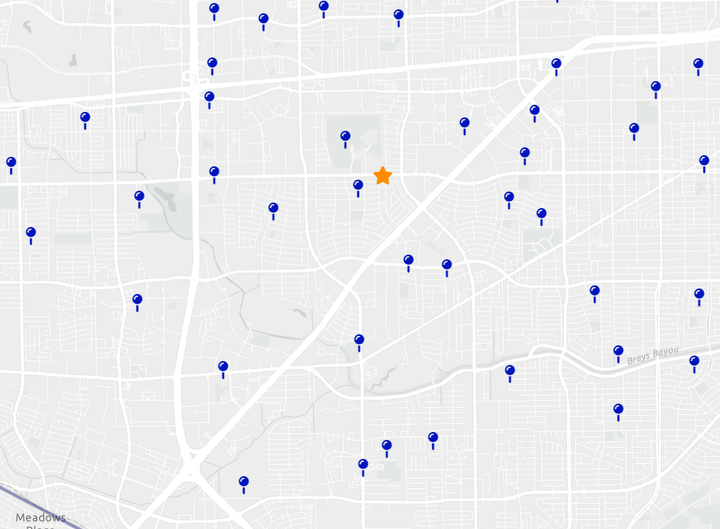
Comments ()